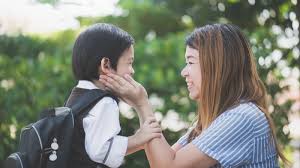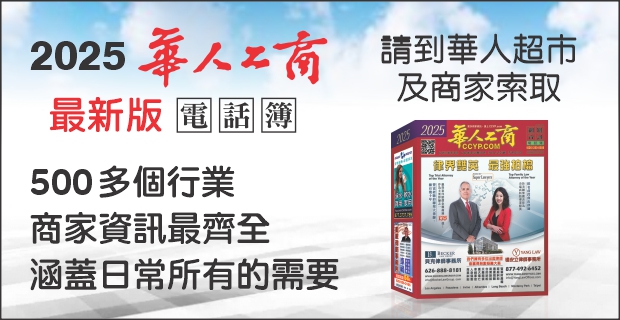如何和孩子谈新冠肺炎?
時間:04/20/2020
瀏覽: 2205
如何和孩子谈新冠肺炎

“For very young children from birth to two
A simple reminder to wash their hands may be all that is needed. Some parents may choose to verbalise changes and social distancing measures by saying things such as ‘there are some illnesses about and so we can’t see your grandparents, we can phone them or connect via facetime or video until everyone is healthy again’. Likewise, brief explainers on why hygiene measures are in place can be useful: ‘there are some illnesses about and so we need to wash our toys or wipe this trolley before we use it’. Use songs and games and as always with children of any age, but especially pre-verbal children, an adult’s calm and reassuring tone, builds feelings of security and safety.
对于从出生到两岁的非常小的孩子
可能只需要简单提醒他们洗手即可。有些父母可能会说“发生某些疾病,因此我们看不到您的祖父母,可以给他们打电话或通过面对面或视频联系,直到每个人都恢复健康”,以此来表达改变和社会疏远措施。同样,简要说明为什么要采取卫生措施也很有用:“有一些疾病,因此我们需要在使用前清洗玩具或擦拭手推车”。经常与任何年龄的孩子一起使用歌曲和游戏,尤其是口头上的孩子(成年人的镇定和安心的语气)会产生安全感和安全感。
Some very young children may demonstrate changes in behaviour at this time (eg seeking handwashing or wiping more frequently). Being aware of this and responding calmly is most effective. Adopting a calm manner can be helpful for settling adult anxiety too.
一些很小的孩子此时可能表现出行为改变(例如,寻求洗手或更频繁地擦拭)。意识到这一点并从容应对是最有效的。采取镇定的态度也有助于缓解成人的焦虑情绪。
For two- to three-year-old children
This group, often referred to as toddlers, is likely to be aware of changes. For example that shelves are empty or less food is available in the supermarket. They may notice that parents are working from home. They may demonstrate insecurity by requiring more comfort and support, not wanting to separate from families or crying more easily.
对于两至三岁的孩子
这组通常被称为幼儿,很可能意识到变化。例如,架子空了,超市里的食物少了。他们可能会注意到父母正在家里工作。他们可能需要更多的安慰和支持,而不是与家人分开或更容易哭泣,从而表现出不安全感。
For this age group, simple yet factual explanations are particularly important, even if they are unable to completely understand. For example, an educator explained ‘Germs are tiny things, so tiny we can’t see them with our eyes—but they can make us sick. We have to take extra care to wash our hands so we wash off the germs before we play/go home’. Again, explaining simple hygiene is something that many early childhood educators do well and reminding children of these is vital. Some parents at this stage may choose to outline that there is a specific ‘germ or virus people are worried about at the moment. This virus can make some people (such as grandparents) very sick and so we need to take extra care’."
对于这个年龄段的人,即使他们无法完全理解,简单而实际的解释也特别重要。例如,一位教育工作者解释说:“细菌是微小的东西,所以微小,我们无法用眼睛看到它们,但是它们会使我们生病。我们必须格外小心洗手,这样才能在玩耍饭/回家之前洗净细菌。再次,解释简单的卫生习惯是许多幼儿教育工作者所擅长的,提醒孩子这些是至关重要的。在此阶段,一些父母可能会选择概述人们目前正在担心的特定“细菌或病毒”。这种病毒会使某些人(例如祖父母)患病,因此我们需要格外小心。
Even if you’ve kept your toddler away from news about COVID-19 in the media or overhearing adult conversations, they are bound to have questions. Here are some age-appropriate responses to the common questions a toddler might have. Most importantly, remember to keep your answers simple and age-appropriate.
即使您已经让您的孩子远离媒体上有关COVID-19的新闻或偷听成年人的谈话,他们也必定会有疑问。以下是一些适合孩子年龄的常见问题的答案。最重要的是,请记住保持您的答案简单且适合年龄。
•Why can’t I play with that little boy over there? “We have to take a break from playing with others so we can all stay healthy.”
我为什么不能和那个小男孩一起玩呢? “我们必须与其他人一起休息一下,以便我们所有人都能保持健康。”
•Why can’t I have a turn with that toy? “We can’t play with other children’s toys right now, so we can all stay healthy.”
为什么我不能转这个玩具? “我们现在不能与其他儿童玩具一起玩,所以我们都可以保持健康。”
•Why are we wiping down everything with wipes? “We wipe things down to keep them clean.” You don’t need to explain more than this—young children don’t understand germs or infection transmission yet.
为什么我们要用抹布擦拭一切? “我们擦拭干净以保持清洁。”您只需要说明一下,年幼的孩子还不了解细菌或感染传播。
•Why is that person wearing a mask? “Sometimes people wear masks when they aren’t feeling well.” More on this question here.
那个人为什么戴着口罩? “有时候人们不适时戴口罩。”有关此问题的更多信息,请点击此处。
•Why won’t Grandpa (or other loved one) kiss or hug me? Reassure your child that their loved one still loves and cares about them very much. Then you can explain: “When a grown-up has a cold, they can keep others from getting sick by not hugging or kissing for a while. When they feel better and are healthy again, the first thing they’ll do is give you a big kiss!”
爷爷(或其他亲人)为什么不亲吻或拥抱我?向您的孩子保证他们所爱的人仍然非常爱护并关心他们。然后您可以解释:“大人感冒了,他们可以通过不拥抱或亲吻一段时间来防止他人生病。当他们感觉好起来又恢复健康时,他们要做的第一件事就是给您一个大大的吻!”
•Why can’t I see mommy (or daddy, grandma, etc.)? If an adult in a child’s life needs to be separate from them, children may feel confused about it. Don’t worry your young child by talking about sickness or quarantine. You can say, “Mommy needs to be away for a little while, but she will be back soon.” Consider ways to stay connected even when physically apart, like video between parent and child. Read more here on making the most of video chat.
为什么我看不到妈妈(或爸爸,奶奶等)?如果孩子生活中的成年人需要与他们分开,孩子可能会对此感到困惑。不要因为生病或隔离而担心孩子。您可以说:“妈妈需要离开一会儿,但她很快就会回来。”考虑即使在身体上分开时仍保持连接的方法,例如父母与孩子之间的视频。在此处详细了解如何充分利用视频聊天功能。
•Why can’t I go to child care/school? “Your child care is closed right now. Your teacher and your friends are home too, just like you. When child care is open again, you can go back and see your friends. I’ll tell you when.” Avoid going into details about illness so toddlers don’t develop fears about attending child care.
为什么我不能去托儿所/学校? “您的托儿所现在关闭。您的老师和朋友也一样,也在家。再次开放托儿服务时,您可以回去见朋友。我会告诉你什么时候。”避免详细了解疾病,以使幼儿不会担心参加儿童保育。
•Why can’t we leave the house? Why can’t my friend come over to play? “Right now, there is a rule that families need to stay home for a little while and be together. That helps us and our friends stay healthy. I know it can be sad when we can’t see and play with friends. But there are lots of fun things we can do together at home! Would you like to play chase or do a puzzle?” Check out our activity guide for play ideas.
我们为什么不能离开房子?我的朋友为什么不能过来玩? “目前,有一条规则是家庭需要在家里呆一段时间,我们全家人在一起。这可以帮助我们和我们的朋友保持健康。我知道当我们无法与朋友见面和玩耍时会很伤心。但是,我们可以在家一起做很多有趣的事情!您想玩追逐游戏还是拼图游戏?”查看我们的活动指南以获取游戏提示。
Even if your child is too young to ask these questions, you might notice that they still appear curious about all the changes happening around them. You can validate that something different is happening without going into detail. Explain that a change in routine is happening and what your child can expect instead: “You’re going to be staying home with Daddy for a little while, instead of going to child care. This morning we’ll go on a walk and then we’ll have a snack.”
即使您的孩子还很小还无法提出这些问题,您可能会注意到,他们仍然对周围发生的所有变化感到好奇。您无需详细说明就可以验证正在发生的事情有所不同。解释一下日常活动正在发生变化,您的孩子可以期望的是:“您将和爸爸待在一起一段时间,而不是去幼儿园。今天早上我们去散步,然后吃点点心。”。
What is the best way to wash hands properly?
正确洗手的最佳方法是什么?
Step 1:Wet hands with running water
步骤1:用流水弄湿手
Step 2:Apply enough soap to cover wet hands
步骤2:用足够的肥皂覆盖湿手
Step 3:Scrub all surfaces of the hands – including back of hands, between fingers and under nails – for at least 20 seconds.
第3步:擦洗手的所有表面(包括手背,手指之间和指甲下)至少20秒钟。
Step 4:Rinse thoroughly with running water
步骤4:用自来水彻底冲洗
Step 5:Dry hands with a clean cloth or single-use towel
步骤5:用干净的布或一次性毛巾擦干手
Wash your hands often, especially before eating; after blowing your nose, coughing, or sneezing; and going to the bathroom.
经常洗手,尤其是在进食之前;blowing鼻,咳嗽或打喷嚏后;去洗手间
If soap and water are not readily available, use an alcohol-based hand sanitizer with at least 60% alcohol. Always wash hands with soap and water, if hands are visibly dirt
如果不容易获得肥皂和水,请使用含酒精至少60%的洗手液。如果明显有污垢,请务必用肥皂和水洗手
来源:Grace晓辉老师课堂
图片翻摄自网路,版权归原作者所有。如有侵权请联系我们,我们将及时处理。
 點評
點評 微信
微信 微博
微博








